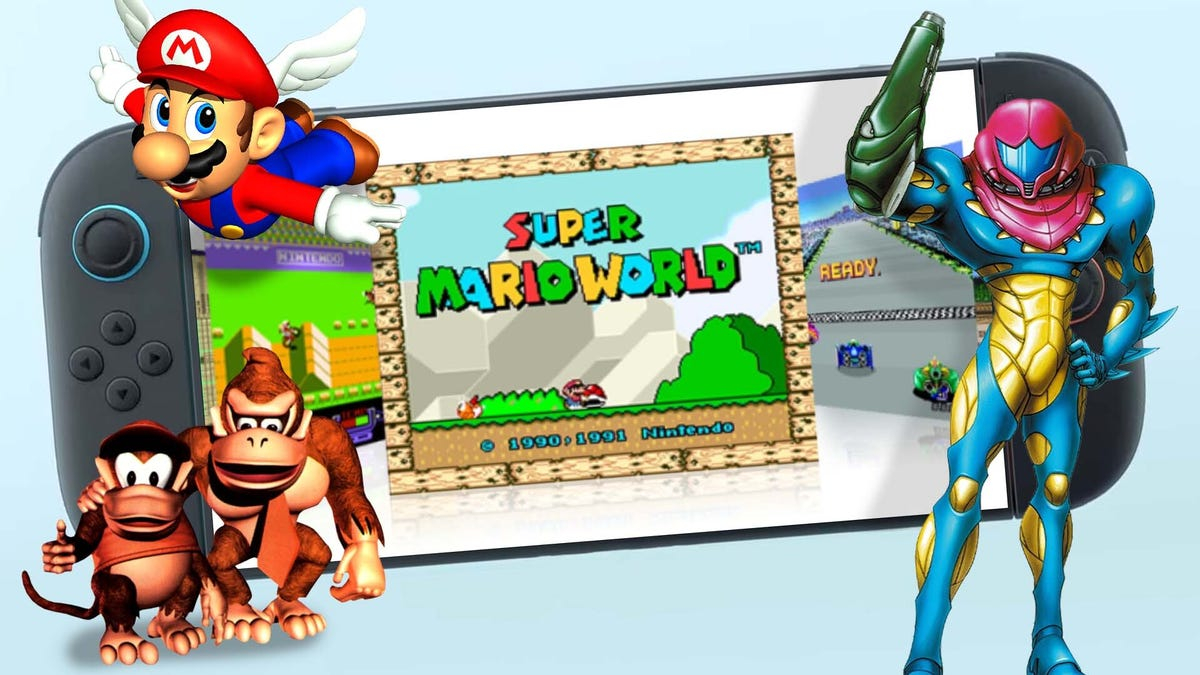The Future of Classic Gaming on Nintendo: A Call for Change with Switch 2
Introduction to Subscription Models in Gaming
As we approach the launch of the anticipated Switch 2, it’s crucial to address a significant concern regarding Nintendo’s current approach to classic game access. Unlike its competitors,Nintendo uniquely requires players to pay a monthly fee for a subscription service that grants access to retro titles,rather than allowing individual purchases. This model is ripe for reevaluation.
The Evolution of Switch Online
When Nintendo introduced Switch Online in 2018, it seemed like a reasonable move. With PlayStation adn Xbox already charging for online multiplayer services,it made sense for Nintendo to follow suit.However, the absence of native voice chat was an immediate drawback. To enhance its appeal,Nintendo included a growing selection of classic NES games as part of the package—an attractive offer at just $20 annually for those who missed out on purchasing an NES Classic two years prior.
Since then, however, both the library and pricing have expanded significantly. In 2019, SNES titles were added; by 2021, games from both the Nintendo 64 and Sega Genesis joined through an Expansion Pack that raised annual fees to $50. Recently added Game Boy titles have pushed this collection over 200 games spanning multiple generations—a notable achievement but one that raises questions about accessibility.
the Absurdity of Renting classics
Fast forward to 2025: it’s somewhat ludicrous that accessing these beloved classics legally requires an annual rental fee rather than outright ownership options. What began as an exciting novelty has morphed into what many perceive as a financial burden—especially when considering how frequently enough players return to specific favorites like The Legend of Zelda: Ocarina of time.
Historically speaking, while other companies have advanced their online features and digital marketplaces more effectively over time—Nintendo was actually ahead in offering downloadable versions of vintage games via its Virtual Console on Wii back in 2006.
A Look Back at Virtual Console’s Legacy
the virtual console allowed gamers access to timeless classics such as Donkey Kong and Mario bros. digitally—a revolutionary concept at its inception. I vividly recall rediscovering Military Madness during my college break; it was thrilling after so long away from those nostalgic experiences.
Though, this model had significant limitations: purchases did not transfer across different consoles (Wii vs. Wii U vs. 3DS), forcing consumers into repeated transactions—a frustrating reality that became emblematic of how disconnected nintendo appeared from player needs.
This frustration initially fueled excitement around Switch Online’s promise: one unified library where users wouldn’t need to repurchase beloved titles repeatedly—but now it seems like another missed chance with no sign yet if they will revive Virtual Console functionality with Switch 2.
The Need for Change with Upcoming Consoles
With confirmation that backward compatibility will be available on Switch 2—offering hope that previously downloaded classics could carry over—it feels increasingly outdated for Nintendo not only not capitalize on this potential but also continue pushing subscription fees akin to renting old favorites without ownership rights.
In contrast with platforms like Xbox Game Pass—which may redefine value propositions by allowing users flexibility alongside purchase options—Nintendo risks falling behind if they don’t adapt their strategy soon enough.
Alternatives Exist Beyond Subscription Services
Other gaming publishers demonstrate viable alternatives by successfully releasing comprehensive collections or anthologies featuring classic titles without resorting solely relying upon subscriptions models; Capcom and Konami are prime examples here—with some even collaborating with Digital Eclipse adding enhancements such as auto-play features or extensive archives containing original artwork or developer notes alongside remastered editions (like Square Enix’s Mana series).
Chris Kohler noted back in late-2018 “the existence” [of subscription services] “doesn’t negate selling these games,” drawing parallels between Netflix offerings versus Blu-ray sales—and yet he cautioned against how frequently enough “Nintendo refuses” opportunities presented before them when launching new products or services altogether!
Conclusion: Anticipating Changes Ahead
As we await further details surrounding what changes might come along with Switch Two later this year—it remains uncertain whether any evolution has occurred within company practices regarding digital game preservation strategies as past iterations left much desired improvement-wise! If history repeats itself again—we could see exorbitant yearly fees attached simply as nostalgia drives demand among dedicated fans willing pay whatever necessary just relive cherished moments spent gaming throughout childhoods past!
